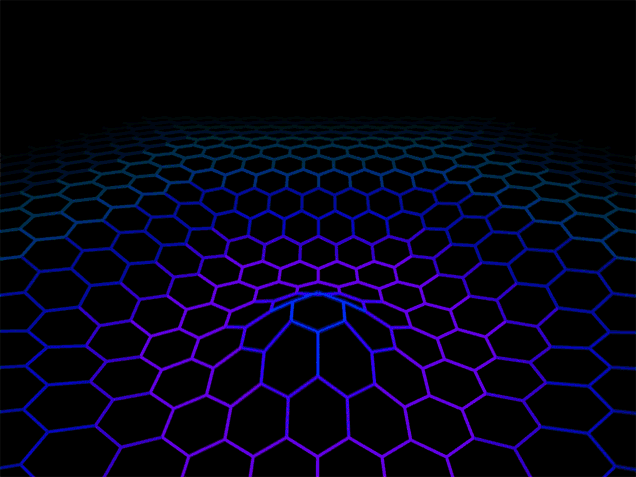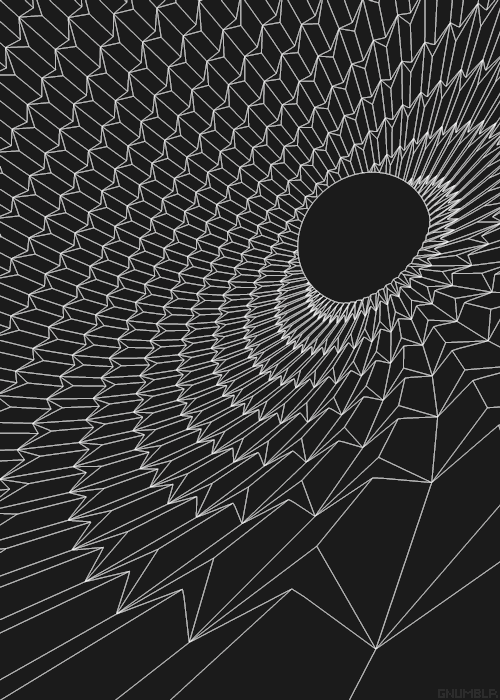Special Report: Russian elite invested nearly
$100 million in Trump buildings, records show
By
Nathan Layne, Ned Parker, Svetlana Reiter,
Stephen
Grey and Ryan McNeill
Reuters
MIAMI/MOSCOW (Reuters) - During the 2016 presidential campaign,
Donald J. Trump downplayed his business ties with Russia. And since taking
office, he has been even more emphatic.
“I can tell you, speaking for myself, I own nothing in Russia,”
Trump said at a news conference last month. “I have no loans in
Russia. I don’t have any deals in Russia."
But in the United States, members of the Russian elite have
invested in Trump buildings. A Reuters review has found that at least 63
individuals with Russian passports or addresses have bought at least $98.4
million worth of property in seven Trump-branded luxury towers in southern
Florida, according to public documents, interviews and corporate records.
The buyers include politically connected businessmen, such as a
former executive in a Moscow-based state-run construction firm that works on
military and intelligence facilities, the founder of a St. Petersburg
investment bank and the co-founder of a conglomerate with interests in banking,
property and electronics.
People from the second and third tiers of Russian power have
invested in the Trump buildings as well. One recently posted a photo of himself
with the leader of a Russian motorcycle gang that was sanctioned by the United
States for its alleged role in Moscow’s seizure of Crimea.
The Reuters review of investors from Russia in Trump’s Florida
condominium buildings found no suggestion of wrongdoing by Trump or
his real estate organization. And none of the buyers appear to be from Putin’s
inner circle.
The White House referred questions from Reuters to the Trump
Organization, whose chief legal officer said the scrutiny of Trump’s
business ties with Russia was misplaced.
“I can say definitively that this is an overblown story that is
media-created,” Alan Garten said in an interview. “I’ve been around this
company and know the company’s dealings."
The tally of investors from Russia may be conservative. The
analysis found that at least 703 – or about one-third – of the owners of the
2044 units in the seven Trump buildings are limited liability companies, or
LLCs, which have the ability to hide the identity of a property’s true owner.
And the nationality of many buyers could not be determined. Russian-Americans
who did not use a Russian address or passport in their purchases were not
included in the tally.
SUNNY
ISLES
The review focused on Florida because the state has a large
concentration of Trump-branded buildings, and determining the ownership of
properties is easier there than in some other states. The resort town of Sunny
Isles Beach, site of six of the seven Trump-branded Florida residential towers,
stands out in another way: The zip code that includes the Sunny Isles buildings
has an estimated 1,200 Russian-born residents, among the most in the country,
U.S. Census data show.
The Trump organization advertises all seven Florida buildings on
its website as it pursues similar branding deals around the world. Exactly how
much income Trump has earned from the buildings is unclear.
Six of the seven properties were the product of an agreement the
New York property magnate struck in 2001 with father-and-son American
developers Michael and Gil Dezer. The six buildings operated by the Dezers in
Sunny Isles would bear Trump’s name under a licensing agreement.
In an interview, Gil Dezer said the project generated $2 billion
in initial sales, from which Trump took a commission. Dezer declined to say how
large a commission, citing confidentiality agreements. Garten, the Trump
Organization’s chief legal officer, said Trump’s income was a mix of flat fees
and percentages but declined to disclose them.
Edgardo Defortuna, a leading Miami developer, estimated that
Trump likely made between one percent and four percent in initial sale
commissions, based on the standard fees paid on similarly branded projects. If
so, Trump stood to reap a total of $20 million to $80 million in Sunny Isles.
Trump receives no commission on subsequent sales in all seven of
the Florida residential towers.
He continues to make money from one of the six Sunny Isles
buildings, however, according to disclosure forms Trump filed in the 2016 U.S.
presidential race. The disclosure form states that Trump received between
$100,000 and $1 million from a business called Trump Marks Sunny Isles I LLC.
Dezer said these funds came from the Trump International Beach Resort, a hotel
and condominium complex.
Trump reported no income on his disclosure form from his seventh
Florida property, the Trump Hollywood in the city of Hollywood. How much he has
made over the years from that property’s 200 units is unclear. BH3, an
investment fund which took over 180 units in a foreclosure sale, paid Trump a
licensing fee of $25,000 for each unit, according to Daniel Lebensohn, a
principal at the fund. If the remaining 20 units generated the same fee,
Trump’s take would have been $5 million. Garten declined to confirm Trump’s
commission.
Informed of the Reuters analysis of Trump’s Russian condo
investors, two Democratic opponents of Trump, Sen. Ron Wyden (D-OR) and
Rep. Adam Schiff (D-CA), renewed their calls for greater disclosure of his
finances.


“While Trump has denied having invested in Russia, he
has said little or nothing about Russian investment in his businesses and
properties in the United States or elsewhere,” said Rep. Adam Schiff, ranking
Democrat on the House Intelligence Committee. “This should concern all
Americans and is yet another reason why his refusal to release his tax returns
should be met with considerable skepticism and concern.”
Sen. Richard Burr (R-NC) and Rep. Devin Nunes (R-CA), the
Republican chairs of the Senate and House intelligence committees, declined to
comment.
Schiff, as well as two U.S. intelligence officials and one
former senior law enforcement official who spoke on condition of anonymity,
said the Russian government sometimes directs funding at prominent individuals
in the United States and Europe in hopes of improving their perception of
Russia. Reuters found no evidence of such an effort with Trump. Garten, the
Trump Organization’s chief legal officer, scoffed at the idea.
“This is politics at its worst,” he said.
RUSSIAN
ELITE
The glimpse inside the condominium dealings offers a look at how
the wealthy in Putin’s Russia use foreign property to stow cash.
One wealthy Russian buyer was Alexander Yuzvik. In 2010, he and
his wife bought unit 3901 of Trump Palace in Sunny Isles for $1.3 million,
according to Florida property records. The three-bedroom apartment has 2,100
square feet and panoramic views, according to an online real estate listing.


From 2013 to 2016, Yuzvik was a senior executive at Spetstroi, a
state-owned company that has carried out construction projects at military
facilities.
The Spetstroi website says the firm was involved in construction
projects at the Moscow training academy of the FSB, Russia’s primary civilian
intelligence service and successor of the KGB. Spetstroi also did construction
work in the administrative building of the general staff of the GRU, Russia’s
military intelligence service.
In a statement sent to Reuters, Spetstroi said Yuzvik worked
there until he stepped down in March 2016.
Employees of some state-owned Russian companies are typically
required to disclose their assets and income. Yuzvik and his wife filed a
declaration for 2013. In that declaration, which is publicly available, they
list only assets inside Russia. The Florida condo isn’t included.
Yuzvik could not be reached for comment.
Andrey Truskov, another Trump condo owner, is a founder and
co-owner of Absolute Group LLC, a holding company involved in wholesale
electronics, banking and property development, with projects in Moscow, London
and New York. The wholesale electronic business is the biggest in Russia, an
Absolute representative told Reuters. The company does not disclose its
financial results.
Truskov bought apartment 1102 in the Trump Hollywood building
for $1.4 million in 2011. The three-bedroom, 3.5-bath unit is 3,100 square
feet, according to online real estate listings.


In a telephone interview, Truskov confirmed that he purchased
the Trump Hollywood unit. He said the Florida apartment was the same price as a
three-room apartment outside Moscow at the time, and Florida was a nice place
to have a property. He said the purchase was a personal decision that had no
connection with his business.
Several wealthy buyers were from Moscow and St. Petersburg, the
country’s two largest cities, according to interviews in Russia, Florida public
records and the Bureau Van Dijk company database Orbis. Among them: Alexey
Ustaev, the founder and president of St. Petersburg-based Viking Bank, one of
the first private investment banks established in Russia after the fall of
Communism.
A donor to orphanages and chess clubs in St. Petersburg, Ustaev
has received awards from the Russian Sports Ministry and the St. Petersburg
chamber of commerce for his banking and charitable work, according to his
biography on the bank’s website.
PROVINCIAL
POWERS
In 2009, Ustaev bought unit 5006, a 3-bed, 3.5-bath apartment in
the Trump Palace complex in Sunny Isles, for $1.2 million in cash, according to
Florida public records. Two years later, Ustaev bought another apartment, a
penthouse unit, this time in the nearby Trump Royale condominium development,
for $5.2 million.
In an email reply to questions, Ustaev said he purchased the
properties in the Trump buildings for private use, but declined to comment on
his family’s U.S. business. “I am living in Russia, I am working in Russia, and
going abroad only for business purposes or vacations,” he said.
Many of the Russian buyers were from the country’s provinces.
One is Oleg Misevra, a wealthy coal magnate and former traffic police commander
whose company’s main assets are in the Pacific island of Sakhalin in Russia’s
Far East. He has caught Putin’s eye: At a 2010 regional meeting of Putin’s
United Russia party, Putin praised Misevra’s work and held a lengthy question
and answer session with him.


A corporation Misevra controls, Swiss Residence Aliance Inc,
purchased Penthouse #1 in Trump Hollywood for $6.8 million in 2010. The
six-bedroom duplex is 8,200 square feet and boasts 12-foot ceilings, according
to real estate listings. Misevra did not respond to requests for comment.
Some of these Russian buyers appear to have done well in
America. Another local politician, Vadim Valeryevich Gataullin, bought an
apartment for $3.5 million in the Trump Hollywood. He did the deal through a
company registered in Florida called VVG Real Estate Investments LLC. Five
years later, Gataullin sold the apartment for $4.1 million to a Delaware-based
limited liability company whose owner is not identified in state records.
In early 2012, Gataullin bought a second apartment in the same
building, unit 2701, for $920,000, according to Florida records. Several months
later, Gataullin sold the apartment for $1.1 million to a couple from
Venezuela, property records show.
Gataullin is from the semi-autonomous Russian Republic of
Bashkortostan, an oil-producing region in the foothills of the Ural Mountains.
The son of a deputy regional prosecutor, he was a deputy in the regional
parliament from 2013 until 2015.


As a member of the regional parliament, he was required to
declare his income and assets under Russian federal law, according to a
representative of the Bashkortostan regional parliament. A copy of the income
declaration Gataullin filed for in 2013, when he was still owner of the second
Trump unit, contains no mention of the apartment.
Gataullin did not respond to messages sent to his company in
Bashkortostan.
FRIEND
OF A BIKER
More recently, Gataullin has been actively investing in the
Miami area. His VVG Real Estate has spent at least $28 million on property in
Broward County between 2012 and 2016. It also bought and sold six properties in
Miami Dade County between 2015 and 2016 for a total profit of $238,400,
property records show.
VVG is also the registered licensee on a small motel close to
the beach in Hollywood. An employee there told Reuters that Gataullin “appears
and disappears like a ghost” and was currently in Russia. A secretary at
Gataullin’s holding company in Russia told Reuters on March 17 that he is not
in Russia.
The American experience has been a mixed one for some of the
Trump buyers. Among them is Pavel Uglanov, a businessman who served as a deputy
minister for industry and energy in the regional government of Saratov, in
central Russia, from 2010 to 2011.
Uglanov bought unit 3704 of Trump Hollywood in Hollywood,
Florida, for $1.8 million in 2012. He sold the 3-bed, 3,395 square foot
apartment for $2.9 million two years later.


Back in Russia, Uglanov made unsuccessful runs for the Saratov
city assembly in 2006 and 2011, the second time as a member of Putin’s United
Russia party. After leaving his deputy ministership in 2011, Uglanov told his
then-wife, Anastasia, they were moving to Florida.
Anastasia said in an interview in her Miami apartment that her
ex-husband never told her why. “I don’t know what goes on in a man’s head,” she
said.
In Miami, Uglanov opened a gas station, called Niko Petroleum.
When that business struggled, he sold it. He then started a charter boat
business and a trucking firm. They struggled, too.
Uglanov did not have connections in the United States like he
did in Russia and he didn’t understand how Americans do business, his ex-wife
said.
Last August, Uglanov posted a photograph of himself on his
Facebook page posing alongside Alexander Zaldostanov, leader of the “Night
Wolves” biker gang. The Wolves, and Zaldostanov personally, were made subject
to U.S. financial and travel restrictions. The U.S. government said gang
members stormed a Ukrainian government naval base and a gas facility during Russia’s
annexation of Crimea.
An aide to Zaldostanov did not respond to questions from
Reuters. The group, in interviews in Russian media, has denied storming the
base and the gas facility.


Zaldostanov has had multiple meetings with Putin, according to
the Kremlin’s website. The Russian president awarded Zaldostanov the country’s
“medal of honor” in 2013.
In a phone interview late last month, Uglanov confirmed the
Trump apartment purchase. He said it was a personal matter and declined to
answer questions. “Basically, my private life is not your business,” he said.
THE
RAINMAKER
For Dezer, Trump’s American partner in Sunny Isles, the six
buildings have been a win for his family, the Trumps and Sunny Isles.
Trump visited the sites at least four times as the buildings –
including a hotel – were constructed and promoted between 2001 and 2011,
according to Dezer and former employees of Dezer’s company. Trump had approval
over the look of the buildings and apartments, Dezer said.
“His people were very much involved in quality control and
construction,” Dezer said. “They were down here once every quarter checking on
us, the progress. They wanted to see we were making money.”
In 2008, when the housing market crashed, buyers defaulted on
900 Trump apartments, according to Dezer. Dezer said he worked hard over the
coming years to pay back creditors. Until those 900 apartments were sold off,
Trump did not earn any money for them, he added.


Foreign buyers bought into the Trump buildings as the developers
dropped their prices after the crash, according to Dezer and local realtors.
The majority of these buyers were from South America, with a smaller percentage
of Russians and other former Soviet nationals.
Tanya Tsveyer, a realtor whose Russian clients have bought in
the Trump buildings, described her customers as primarily business people,
including several with investments across the United States and Russia.
“They bought in the Trump because they liked how the buildings
fit their lifestyle,” she said, referring to the Russians.
By early 2011, the Trump buildings had started to turn a profit,
according to Dezer. He invited Trump to a mortgage burning ceremony to
celebrate Dezer’s paying off the project’s $475 million dollar mortgage. Dezer
recalled Trump telling him that he planned to run for president.
At the party, Dezer, his father and Trump gleefully set flame to
a stack of mortgage documents, applauded by a crowd of tenants from the Trump
buildings and local business people. A video of the event shows Trump smiling,
joking and working the crowd.


“I was with Michael Jackson when he had the hair burned with the
Pepsi, and it was a disaster,” Trump told revelers, referring to the time the
pop superstar’s hair caught fire during the 1984 filming of a Pepsi commercial.
“I am sitting next to that friggin’ fire, and if my hair goes, I am out of
business.”
Dezer and Trump got help selling the condos from Elena Baronoff,
who immigrated from the Soviet Union in the 1980s. Baronoff, who grew up in
Uzbekistan, had been active in Soviet cultural associations. In Miami, she soon
began bringing Russian tour groups to Miami.
Gil Dezer’s father, Michael, recruited Baronoff to work
alongside the Dezer corporation. She traveled to Moscow, St Petersburg, France
and London to bring in Russian buyers, according to Dezer, selling apartments
to them for between $1 million and $2 million. Baronoff was diagnosed with
Leukemia in 2014 and died a year later.
“She was huge, she was big for them,” Dezer said, referring to
Russian buyers. “No one has filled her shoes.”
(Additional reporting by Jack Stubbs in Moscow, John Walcott,
Mark Hosenball, Jonathan Landay, Arshad Mohammed and Warren Strobel in
Washington, and Astha Rajvanshi in New York. Editing by David Rohde and
Christian Lowe)



No comments:
Post a Comment